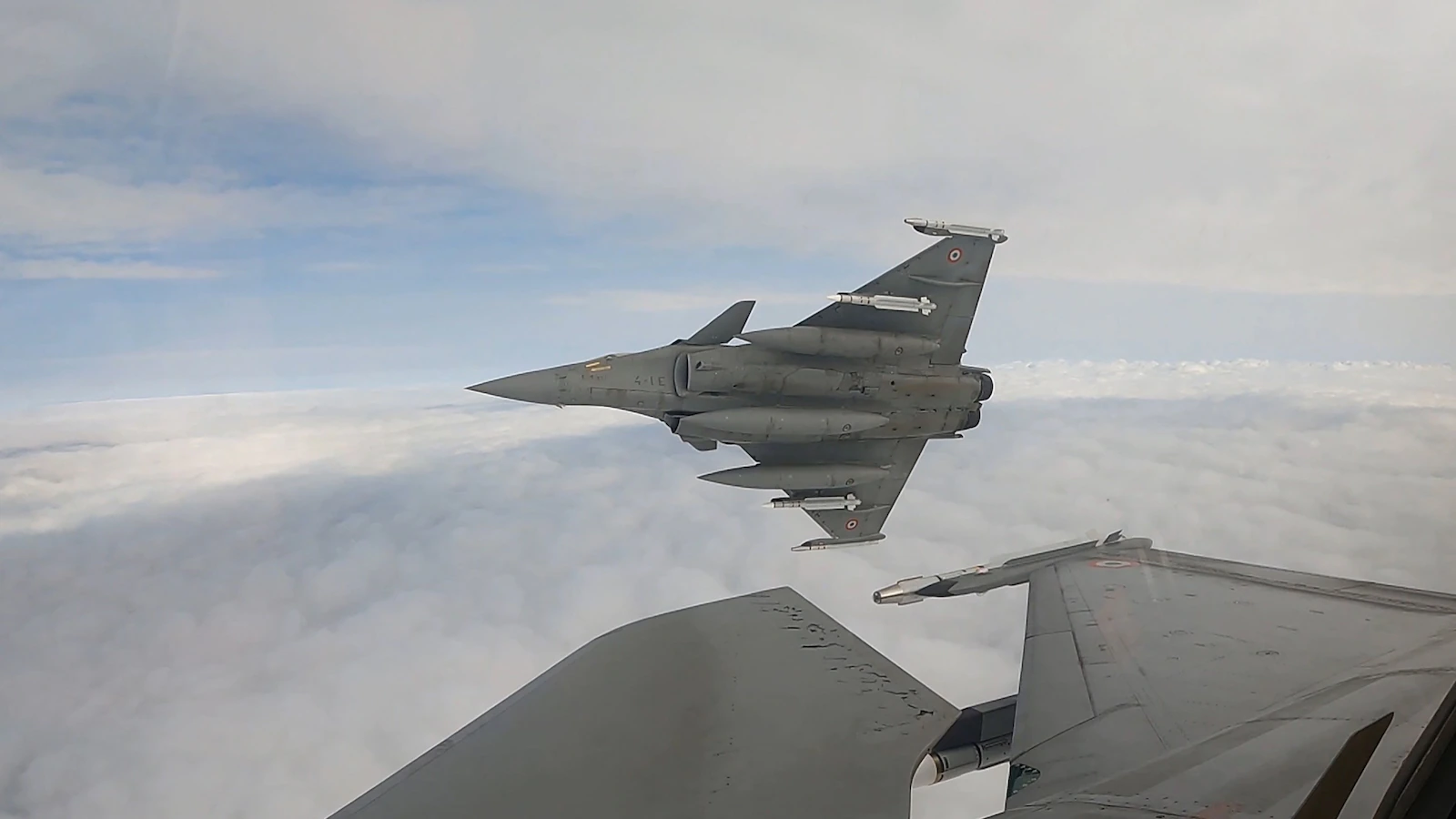By David Brennan
Copyright go

LONDON — Polish President Karol Nawrocki on Sunday signed a classified decree permitting a permanent NATO troop in Poland as part of “Eastern Sentry,” the alliance’s new operation to defend against Russian drone attacks following last week’s incursion of craft into Poland.
NATO Secretary-General Mark Rutte announced the new operation on Sept. 12, two days after at least 19 drones crossed into Polish airspace during a large-scale Russian attack on Ukraine. At least three of the drones were shot down, Warsaw said, with Polish F-16 and Dutch F-35 fighter jets scrambled to respond.
Such incursions are not new. Poland has reported the entry of Russian drones and missiles multiple times since Moscow began its full-scale invasion of Ukraine in February 2022. A Ukrainian air defense missile also violated Polish airspace in November 2022, killing two people when it landed in eastern Poland.
Elsewhere along the alliance’s eastern edge, Latvia, Lithuania and Romania have all reported Russian drone incursions. At least one Ukrainian drone has also crashed in Estonia, which Tallinn said was sent off course by Russian electronic warfare measures.
Eastern Sentry “will even further strengthen our posture to shield and protect all allies,” NATO’s Supreme Headquarters Allied Powers Europe (SHAPE) said in a statement.
“The violation of Poland’s airspace earlier this week is not an isolated incident and impacts more than just Poland,” said Gen. Alexus G. Grynkewich, NATO’s supreme allied commander Europe. “While a full assessment of the incident is ongoing, NATO is not waiting, we are acting.”
“Eastern Sentry and this new approach will deliver even more focused and flexible deterrence and defense where and when needed to protect our people and deter against further reckless and dangerous acts,” Grynkewich said.
The operation was launched as a result of Poland’s invocation of NATO’s Article 4 in response to the Russian drone incursions.
So far, Denmark has committed two F-16 fighters and an anti-air warfare frigate, France said it will contribute three Rafale jets and Germany said it will deploy four Eurofighter aircraft.
The operation is being run by NATO’s Allied Command Operations (ACO), and is modeled on the Baltic Sentry operation introduced in January 2025 to enhance security in the Baltic Sea.
As in the Baltic Sea, SHAPE said ACO will collaborate with NATO’s Allied Command Transformation “to rapidly experiment and field new technologies at alliance-wide scale, such as counter-drone sensors and weapons to detect, track and kill drones.”
At least one drone violation of NATO airspace has been recorded since Eastern Sentry began. On Sunday, Romania’s Defense Ministry confirmed to ABC News that one drone entered its airspace during a Russian attack on Ukrainian targets close to the shared border.
F-16 fighters tracked the drone until it turned back into Ukraine, a ministry spokesperson said. The violation is the eleventh recorded since Russia’s invasion of Ukraine began, according to Defense Ministry figures provided to ABC News.
The Institute for the Study of War think tank suggested in a weekend briefing that Russian drone incursions into NATO airspace are “likely attempting to gauge NATO’s capabilities and reactions to the drone incursion in hopes of applying lessons learned to possible future conflicts against the NATO alliance.”
Ukrainian officials have likewise argued to their NATO backers that drone incursions are intentional, despite Moscow’s repeated denials.
“The Russian military knows exactly where their drones are headed and how long they can operate in the air,” Ukrainian President Volodymyr Zelenskyy wrote on Telegram this weekend. “Their routes are always calculated. This cannot be a coincidence, a mistake, or the initiative of some lower-level commanders.”
“It is an obvious expansion of the war by Russia — and this is exactly how they act,” he added. “Small steps at first, and eventually big losses.”
Russia has denied any responsibility for drone incursions into NATO nations. Officials in Moscow have also warned that NATO’s actions against such craft would constitute a dangerous escalation of the standoff between Moscow and its Western adversaries.
Dmitry Medvedev — the former Russian president and prime minister now serving as the deputy chairman of the country’s Security Council — on Monday railed against what he called “provocative” proposals for NATO allies to begin shooting down Russian munitions over western Ukraine.
Polish Foreign Minister Radoslaw Sikorski is among those to have recently discussed this approach, which advocates say will enhance allied security by preventing Russian munitions from approaching NATO borders.
“The implementation of the provocative idea of Kyiv and other idiots about creating a ‘no-fly zone over Ukraine’ and the ability for NATO countries to shoot down our UAVs will mean only one thing — a war between NATO and Russia,” wrote Medvedev, who has become known as a particularly hawkish voice within President Vladimir Putin’s security establishment.
ABC News’ Patrick Reevell contributed to this report.



